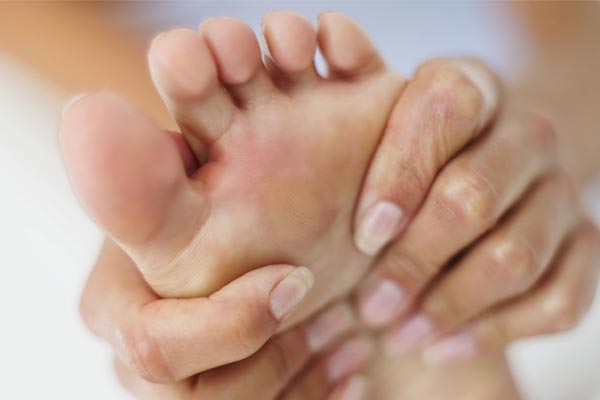‘I’m new to fibromyalgia’ the complete investigation of chronic fatigue syndrome!
A 28-year old, Jennifer is working in a software company as a software developer. From past three years, things are going unusually with her. She can’t focus on her work.
She has a very irritating and uncomfortable sleep. She is experiencing a sudden onset of pain anywhere in the body.
She is extremely stressed out about her medical condition, but still, she is dismissing the immense symptoms due to the excessive workload.
What is happening to Jennifer? Is it something serious? Does she immediately seek the medical help?
Well, this is not only the story of Jennifer; more than 10 million people experience the similar symptoms of fibromyalgia.
In fact, most of them are still unaware of the disease and somehow, their quality of life is disturbing.
Though male and female both can suffer from the fibromyalgia, but when it comes to the incidence, women are more susceptible to develop the fibromyalgia.
Of course, seeking medical help is the eventual measure for early diagnoses of the fibromyalgia so that you can get the treatment earlier as well.
The good news about this disease is it won’t be life-threatening or progressive disease; yet, treatment can alleviate the symptoms and improve your overall health.
What is fibromyalgia?
Though, this question may be popping into your mind that what is it? And why it is hurting you? Fibromyalgia is one of the most common musculoskeletal disorders causing pain and aches along with the concentration and sleep issues.
However, fibromyalgia is often referred to the rheumatic condition. Though fibromyalgia doesn’t affect your joints and muscles, the tenderness and pain that you would experience in fibromyalgia mimic to the pain of rheumatoid arthritis.
How would you know that you’re suffering from fibromyalgia?
Still, the core cause of fibromyalgia is unknown, but several studies suggested that due to the weird pain processes by the brain and abnormal chemical process, you could get pain in different sites of the body.
However, the intensity and severity of the condition vary widely from one person to another.
Generally, following are the alarming signs that you shouldn’t ignore at any cost and if it is increasing day by day, then, get the medical help immediately!
- Pain in head, upper back, neck, elbows, knees, and hips.
- Frequent bursts of fatigue
- Difficulty of concentration
- Sleep disturbance, including, restless leg syndrome, sleep apnea, and teeth grinding
- Gastric issues, including, nausea, diarrhea, constipation, abdominal pain, and bloating.
- Depression and anxiety
- Headache and migraines
- Painful menstruation
- Dry mouth, skin, and eyes
- High sensitivity to odors, noise, and bright lights
Are you at risk of fibromyalgia?
If you know that either you’re at-risk of fibromyalgia or not, you would deal with the problem more profoundly.
Middle-aged individuals are more prone to get the episodes of fibromyalgia frequently. If you’ve a past medical history of lupus and arthritis, then, you’re at more risk of developing fibromyalgia.
If your mother or grandmother has had a fibromyalgia, then, be prepared, because fibromyalgia can hit you as well. Additionally, experiencing sleep problems regularly can double the risk of fibromyalgia.
Stress is another contributing factor of fibromyalgia. Even, if you’ve been exposed to the car accident or repetitive injuries, it could trigger the fibromyalgia.

What are the common triggers of fibromyalgia and its flare-ups?
Sometimes, it happens that everything is going well while living with the fibromyalgia, but suddenly you experience the spikes in the symptoms.
When you don’t know about the potential triggers, you’re more likely to develop the fibro flare-ups. Due to the worsening of symptoms, it’s almost impossible for you to complete your work efficiently.
So, go through with the following triggers and notice that which one is your trigger.
- Weather changes regardless, it is extremely cold or hot
- Resting too much or too little
- Exercising too much or too little
- Depression and anxiety disorders
- Stress
- Fragrance
- Light
- Hormonal changes, especially during menopause
- Disturbed or deficiency of sleep
- Frequent travelling
What are the best treatment options available?
Well, conservative management would be the first line of treatment initially, but if the symptoms are not going away by any measure, then, the non-conservative management is usually preferred.
As a fact, pharmacotherapy would be a big help for improving the pain. Your doctor may suggest you tramadol( painkiller), alprazolam (anti-anxiety agents), cyclobenzaprine (muscle relaxant), venlafaxine (antidepressant), gabapentin (anticonvulsant), and clonidine (alpha 2 agonist).
Somehow, non-pharmacotherapy is highly encouraged to get the optimal mental peace. You should include following measures in your life along with swallowing the pills.
1- Massage therapy
This is tremendous for people living with fibromyalgia. Because massage reduces stiffness and increases the blood flow, the pain would be eased off. Also, it relaxes your taut muscles so that the tender points won’t develop again.
2- Applying hot or cold pack
To get the quick relieve, apply hot or cold pack on the painful site for about 10-15 minutes. Swelling around the painful area is also common.
Hence, a cold pack would resolve the inflammation as well. If the pain is continuous throughout the day, apply hot or cold pack three times in a day.
3- Hydrotherapy
If the stiffness is compromising your quality of life, go and get enrolled in the hydrotherapy session. In fact, it can also strengthen your muscles.
4- Acupuncture
Forgetting the alleviation of the pain, acupuncture is highly recommended nowadays. It also treats the depression and you would see the drastic difference in your sleep pattern.
5- Mindful Yoga
Mindful Yoga is another way to combat the stress and pain. Get into your favorite yoga posture and retain it for a bit longer duration. Take deep breaths and let your stressful toxins eliminated from your body.
Do I need to modify my diet?
Well, you should be careful about what are you eating and what not. Avoid all the unhealthy food, especially, processed or junk food.
Get the sufficient amount of magnesium-rich food. Avoid caffeine and alcohol. Eat more fruits and vegetables.
REFERENCES:
http://www.medicinenet.com/script/main/art.asp?articlekey=89309
http://www.healthline.com/health/fibromyalgia
http://www.niams.nih.gov/health_info/fibromyalgia/fibromyalgia_ff.asp
http://www.medicalnewstoday.com/articles/147083.php
http://www.nhs.uk/Conditions/Fibromyalgia/Pages/Introduction.aspx
http://www.everydayhealth.com/fibromyalgia/fibromyalgia-101.aspx






Definitely weather.. physical work almost to the slightest, weight bearing in some things & I include arthritis is a definite mix with it. In flare now3 days. Weather is the storm approaches…then here & when it goes generally much better. It is for me ..the storm blew into me & then blew out.
Weather doesn’t affect me but often times bearing weight does. Do you mean bearing your own body weight like walking or standing for long periods of time or bearing weight like carrying a heavy box or bag? Standing, sitting, and walking for long periods of time usually causes a flareup for me. It’s a daily struggle, especially when I’m not getting treatment due to one reason or another.
I like your explanation a lot! “Though, fibromyalgia doesn’t affect your joints and muscles, but the tenderness and pain that you would experience in fibromyalgia mimics to the pain of rheumatoid arthritis.”
I have had chronic muscle and joint pain since I was 10 years old. I am now 23 and it has gotten worse over the years. Most of my pain is in my neck, lower back, shoulders, and ankles. The pain feels like it’s my joints since “cracking my joints” usually relieves some of the pain. But my shoulders I know for sure is from muscle inflammation. I’ve had xrays done to prove that I have tendonitis in my shoulders. Although most doctors say my progressive pain is not related to each other. I definitely feel like it is since, well, it’s progressively gotten worse. New symptoms appear every year or so. I’ve seen numerous doctors and specialists and nobody can tell me what’s wrong, just a lot of educated guesses. One of those guesses was by an adult primary doctor who suspected I have fibromyalgia. It’s frustrating since noone can just do a test and say hey you’ve got fibromyalgia. The rheumotologist just told me to try some pills and see if my pain gets better. if it does then i do have it. I hate such an ambiguous way of diagnosis. There has got to be a better way. It sucks that MRIs don’t prove it either. You would think since it has to do with processes by the brain and abnormal chemical processes that an MRI would show you something. Looking at the symptoms here I would say I only get a few of these: pain in head, upper back, neck, and knees (and other joints), frequent bursts of fatigue, migraines/headaches, painful menstruation, and worse of all high sensitivity to odors, noise, and bright lights. The joint pain, migraines, and light/noise sensitivity are the worst. They make me feel awful and cut into my daily and social life. If I didn’t have a great support system or self esteem I would probably add depression and anxiety to the list. I can’t stay up late and watch scary movies in the dark with my family because i get migraines from the tv light. I can’t dance (which is my passion) as well as i should because of all the joint pain making my body all stiff. I’m tired all the time so work is difficult let alone having a social life. I wouldn’t wish this on my worst enemy.
My main triggers are typically light, disturbed or deficiency of sleep, bad diet, and stress. I don’t feel pain when I’m lying down but anything else causing a slow buildup of pain, usually starting in my lower back.
I tried the muscle relaxant and hated it. I woke up feeling like I got hit by a garbage truck. Acupuncture didn’t do anything for me either although the acupressure massage that followed did temporarily lessen my pain quite a bit. Applying heat/cold didn’t have any results. It only helped to loosen my muscles a bit before the chiropractor manipulated me. Since I feel better with exercise my doctor prescribed yoga and tai chi, I don’t like them but I’m giving them a try along with chiropractor and physical therapy. If anyone knows of better ways to diagnose or tell tale signs other than “nothing else fits” please let me know. Also any treatments other than taking pills. Except for this pain I’m actually quite healthy and young, one of the main reasons doctors can’t figure out why I’m having pains like that of someone much older. Any advice would be greatly appreciated!